To immediately sign the Fair Culture Charter, click here as an individual or here as an organization!
Supporters of the
Fair Culture Charter
This Fair Culture Charter is the result of a global participatory effort throughout the year 2023. Artists, creatives, scientists, civil society representatives and ministry representatives from all corners of the world were given a voice.
The Charter was adopted in February 2024 by an Advisory Board of 12 institutions. They are the "First Signatories" of the Charter.
The First Signatories of the Charter
An Advisory Board of twelve partner institutions was iteratively created between 2022 and 2024, following a side-event at the UNESCO World Conference on Cultural Policies, Mondiacult, in Mexico City in September 2022. The Advisory Boards has accompanied the work of the Editorial Team in several meetings throughout 2023, has discussed drafts of the Fair Culture Charter and has adopted the final version in February 2024.
- Fair Trade International
- FairPicture
- Goethe Institut (Germany)
- Instituto Maracá (Brazil)
- Institute for Creative Entrepreneurship & Innovation (IKPI, Serbia)
- International Federation of Actors (FIA)
- International Federation of Coalitions for Cultural Diversity (IFCCD)
- International Federation of Musicians (FIM)
- UNESCO Chair at University Laval (Canada)
- French National Commission for UNESCO and Ministry of Culture of France
- Kenya National Commission for UNESCO
- Korean National Commission for UNESCO
The Advisory Board is chaired by Marie-Julie Desrochers, Secretary-General of IFCCD. The work of the Advisory Board was facilitated by the German Commission for UNESCO.
These 13 institutions have been the "first signatories" of the Fair Culture Charter.
After the launch of the Fair Culture Charta, the following institutions have signed the Fair Culture Charter on this website. The list is constantly amended, by adding additional signatories. Important: Signing the Charter does not mean any form of certification; featuring in the list below may not be interpreted as any form of statement about the signatories:
- World Musique Festival "Métissons", Saint-Louis, Senegal
- "Hip Hop Family" Academy, Rabat, Morocco
- Fondation Marcel Hicter, Brussels, Belgium
- Kenya Cultural Centre, Nairobi, Kenya
- Creatopolis, Veracruz, Mexico
- Swiss Musicians' Union, Zurich, Switzerland
- UNESCO City of Literature, Heidelberg, Germany
- Musiques en balade, Strasbourg, France
- La Boîte interculturelle, Quebec, Canada
- Fundación Urbe, Buenos Aires, Argentina
- Development Centre "Democracy through Culture", Kyiv, Ukraine
- Fondation Princesse Momafon Rabiatou Njoya, Fooumban, Cameroun
- Organization for the Democratization of the Visual Arts, Berlin, Germany
- The Ebenes'Art Association, Yaoundé, Cameroun/ Beutara SAS, Montpellier, France
- Baensch-Studio, Bayreuth, Germany
- Mapamundi Música, Artist Agency, Spain
- Health education agriculture and rural development society, India
- Junges Theater, Bonn, Germany
- Culture and Arts for Love and Living (CALL), Barbados
- Netzwerk Junge Ohren, Berlin, Germany
- General Incorporated Association Arts Workers Japan, Tokyo, Japan
- Huila Festival Internacional de Música / Fundación campofonicos, Colombia
- ICOMOS Ireland as member of ICOMOS International, Ireland
- ArtVenture Club e.V., Düsseldorf, Germany
- Les Toupies d'Agrado, Angoulême, France
- Fundación campofonicos, Colombia
- Ricci Producciones, Colombia
- Fundación Tierra Caliente arte y parte, Colombia
- The University of Latvia, Latvia
After the launch of the Fair Culture Charta, the following individuals have signed the Fair Culture Charter on this website (in the words and language of the signatories themselves). The list is constantly amended, by adding additional signatories. Important: Signing the Charter does not mean any form of certification; featuring in the list below may not be interpreted as any form of statement about the signatories:
- Beat Santschi, General Secretary of the Swiss Musicians' Union, Switzerland
- Andrés Muñoz Cárcamo, Lawyer and consultant, France
- Michelle Shocked, Independent international artist, singer-songwriter, composer, activist, United States
- Milena Dragicevic Sesic, University professor, Serbia
- David Waweru, Publisher, Kenya
- Jeanine van Halteren, Assistant Professor and Artist, Norway
- Hiroko Tsuboi-Friedman, Consultant, Switzerland/Japan
- Cristian Carvajal, Consultor en Turismo Sostenible, Chile
- Carlos Javier Villaseñor Anaya, Consultor e políticas patrimonio y derechos culturales, México
- Estefanía Rodero, Socióloga de la cultura, España/Spain
- Barbara Imgrund, Freelance translator and writer, Germany
- Hevi Joël Komlan Senam, Founder at Culture On The Move, Togo
- Fawzy Al-Aiedy, Chanteur-musicien, France
- Nadine Patel, Arts Manager, United Kingdom
- Lahsen El Bouhali, Responsable pédagogique, artistique et culturel des écoles 1337, Maroc/Morcco
- Amina Cherrad, DJ, Suisse/Switzerland
- Jamaaladeen Tacuma, Producer, composer , bassist, USA
- Melisa Carolina Argote Vidaurre, Cultural Management, Argentina
- Isabel Eddouks Taurel, Lecturer in the Arts, Morocco
- Jean Berry, Journalist, France
- Badr Binobin Defouad, Auteur compositeur, France
- Adlane Binobin Defouad, Auteur compositeur interprète, France
- Wora Magali, Entrepreneur culturel, Gabon
- Ledeanu Alina, Presidente de Fondation culturelle, Directrice de revue culturelle, Roumanie/Romania
- Alfred Ullrich, Freischaffender Künstler, Deutschland/Germany
- Patrick Sternberg Rubiano, Performing arts, Colombia
- Elisha Odhiambo, Musician, Kenya
- Vinnie McCabe, Theatre maker, Ireland
- Marta Llobet, Programme Manager and Focal Point for Culture, UCLG, Spain
- Mafalda Damaso, Academic, United Kingdom
- David Ryding, Arts manager, Australia
- Yisma Tsige Yeshanew, Research, Consultancy, Advocacy, Ethiopia
- 'Matsooana 'Mabafokeng Seala, Artist, Lesotho
- Nyota Shumirai, University Professor, Zimbabwe
- Gabriela Sanchez Villegas, Cultural Manager, Mexico
- Akshay Sangle, Business person, India
- Rico Schwibs, Independent musician, Germany
- Maria Manjate, Cultural manager, Mozambique
- Blerina Berberi, Creative Economy & Culture Policy, Albania and Canada
- Nancy Duxbury, Researcher, Portugal
- Antònia Robles Martínez, Cultural Manager, Spain
- Aghan Odero Agan, Arts & Culture Management Professional, Kenya
- Cristina Peregrina, Culture manager and policy expert, Austria and Mexico
- José Luis Ben Andrés, Cultural manager, Spain
- Claudio Ramires, Painter/artist, Brasil
- Aseel Azizieh, Visual Artist, Georgia and Turkey
- Faust Campana, Andorra
- Yasmin Khan, United Kingdom
- Benabdelhamid Amine, France
- Jean-Michel Armengol, Andorra
- Andrés Dengra Carayol, Spain
- Marc Mascort i Boix, Spain
- Dalia Pazos, Colombia
- Raquel Zozaya Aldana, Colombia
- Beatriz Duque, Colombia
- Margarita Uribe Gaviria, Colombia
- Hernán Montes, Colombia
- Alejandro Trujillo Moreno, Colombia
- Jose Giraldo, Colombia
- Paraic Mc Quaid, Ireland
- Diego Martín de la Cruz Salas, Peru
- Martina Liebethal, Germany
- Gustavo Jaramillo Domínguez, Colombia
- Xavier Mingo, Spain
- Charlotte Le Bras, France
- Eduardo González, Colombia
- Fabian Melo, Colombia
- Melquisedec Torres, Colombia
- Luis Carlos Rodríguez Rodríguez, Colombia
- Wilson Perdomo, Colombia
- Indira Muñoz, Colombia
- Mauricio Ortiz, Colombia
- Didy Ramazani, CEO Les Erudits, Democratic Republic of Congo
- Moustapha Diop, CEO MusikBi, Senegal
- Rachid Ennassiri, Meteor Airlines, Morocco
- Yasmin Adriana Camelo, Colombia
- Bencze Robert-Valentin, Romania
- Compingt Maxime, France
- Isabela Amaya Mosquera, Colombia
- Diego Nicolás Bonelo Garcia, Colombia
- Juan José Cadavid, Colombia
- Vicente Silva Vargas
- Valeria Arenas Castro, Colombia
- Mandapati Venkateswarlu, India
- Raut Sanjay Keshav, India
- Marion Casals-Miollan, Chargée de Mission Culture, France
- Luis Amador-Brenes, Presidente de Sindicato de Músicos UTM, Costa Rica

The content of the Charter
The Charter strengthens fairer cultural relationships by articulating a preamble, a definition, four objectives and eight principles intended to promote a sustainable, fair and respectful environment for artists, creatives, and other cultural workers, and, therefore, to safeguard cultural diversity globally.
Read the full text of the Charter or download the PDF brochure in ►English ►Français ►Español ►Deutsch
Statements about the Fair Culture Charter

Emily Njeru
"The Charter is a key milestone for mobilizing advocacy and social justice for the culture and creative sector. I have no doubt that the Charter will contribute to adoption of fair, responsive and transformative culture policies across the world."
Emily is the Acting Director of the Culture Programme of the Kenya National Commission for UNESCO.

Hristina Mikić
"Fair Culture and the Charter are innovative tools which open a new era of understanding and developing culture and the creative sector. This initiative is a crucial step towards connecting different developmental dimensions and stakeholders and fostering a fair and equitable development of cultural and the creative sector."
Hristina is associate professor of finance and creative economy at Metropolitan University in Belgrade, Serbia, and the Head of R&D at the Institute for Creative Entrepreneurship and Innovation (IKPI).

Jordi Baltà Portolés
"The Fair Culture Charter contributes to international debates on the place of culture in sustainable societies, highlighting the need to consider the working and living conditions of culture professionals and to address imbalances in international cultural exchange. By fostering consumer awareness, it also makes us conscious of how our everyday decisions affect cultural diversity."
Jordi is a cultural governance and development expert, he was member of the Editorial Team.

Eduardo Saravia
"I see the Fair Culture movement and Charter as vital tools to address long-standing demands for a fairer cultural sector with a global impact. Cultural workers, particularly freelancers, face precarious conditions, especially in the Global South. This Charter promotes decent working conditions, innovative private sector partnerships, and equitable digital access, fostering a more just and balanced cultural ecosystem globally."
Eduardo is Chief Economist at Sound Diplomacy and was member of the Editorial Team.

Eddy Johana Gómez
"Fair Culture in 2024 is of utmost importance, as prioritizing human relationships and justice is vital in our time. The Fair Culture Charter reminds us of fundamental principles where freedom, humanity, and justice prevail within the cultural sphere. Culture, as an essential space for interaction and expression, should be the place where equitable relationships are fostered among all involved parties."
Eddy is founder and director of Llorona Records, Discos Pacífico and Llorona Foundation, she was a member of the Editorial Team.

Luanda Smith
"Artists and workers in the cultural and creative sectors are the starting point for the development of this Charter. Their human right to a dignified life through fair remuneration for their work should be the highest endeavour of the movement."
Luanda is founder of the Mexican CSO Creatividad y Cultura Glocal, she was a member of the Editorial Team.
Why sign the Charter?
Why should YOU sign the Charter? If you do, you declare that you support the Charter’s content and that you support our intention to take further steps. If you sign, you will increase the number of partners and allies and thus visibility, credibility and legitimacy.
Signing the Charter does not entail any legal obligation for you. This however also means that signing the Charter is not a "certification” and does not allow you to make any statements about the quality of your business practices in relation to the
Charter. By signing the Charter, you will not be entitled to use any logo or a label.
Learn more about the process and the experts involved in formulating the Charter.
On behalf of the partner consortium for Fair Culture /
Au nom du consortium partenaire du mouvement Fair Culture /
En nombre del consorcio asociado de Cultura Justa /
Im Namen des Partnerkonsortiums für Fair Culture:
German Commission for UNESCO /
Commission allemande pour l'UNESCO /
Comisión alemana para la UNESCO /
Deutsche UNESCO-Kommission e.V.
Martin-Luther-Allee 42
53175 Bonn
Germany / Allemagne / Alemania / Deutschland
+49 228 60497 100
info@fair-culture.org
Dr. Lutz Möller (responsible / responsable /verantwortlich),
Friederike Kamm, Juliane Baumgarten, Zsuzsanna Aszodi
Imprint / Mentions légales / Editor / Impressum
Data protection / Protection des données / Protección de datos / Datenschutz
Wir benötigen Ihre Zustimmung zum Laden der Übersetzungen
Wir nutzen einen Drittanbieter-Service, um den Inhalt der Website zu übersetzen, der möglicherweise Daten über Ihre Aktivitäten sammelt. Bitte überprüfen Sie die Details in der Datenschutzerklärung und akzeptieren Sie den Dienst, um die Übersetzungen zu sehen.
